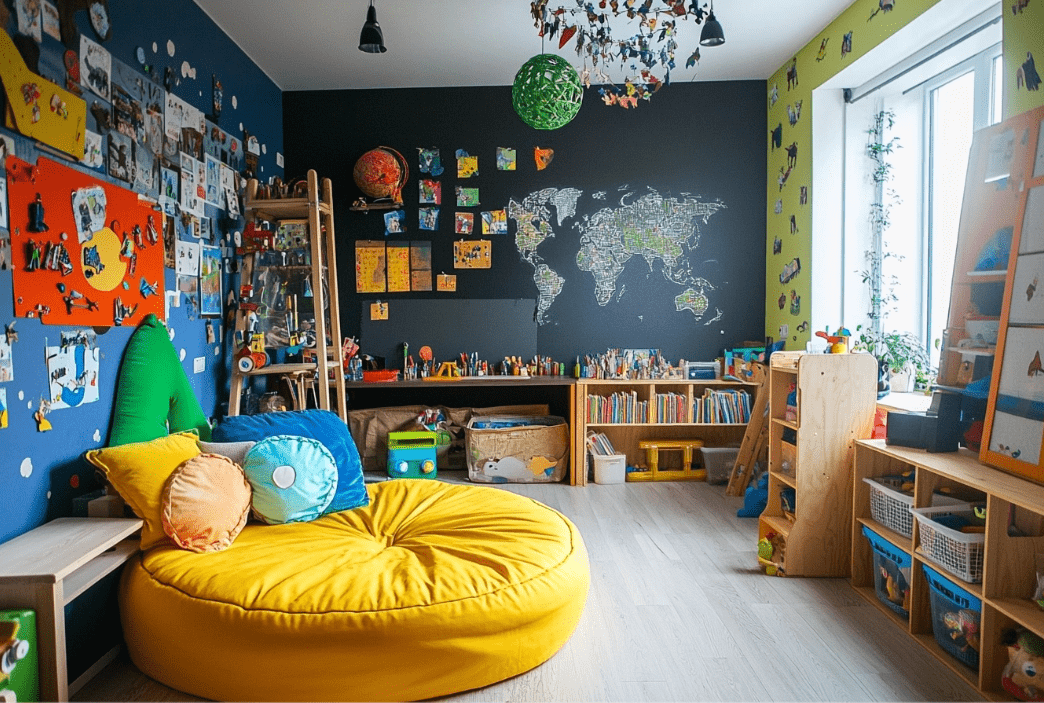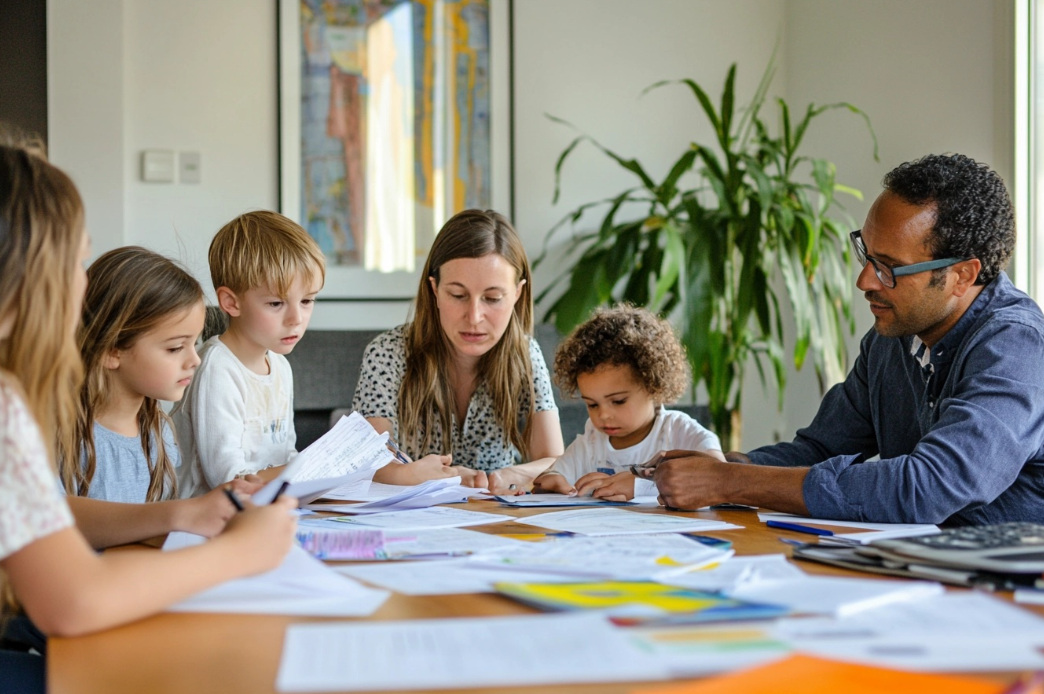The physical environment of a home shapes children’s independence, creativity, and emotional regulation. Research in child development highlights the importance of spaces that allow for safe exploration, sensory engagement, and moments of calm. Simple interventions—like reading nooks, art corners, movement-friendly pathways, and calming sensory zones—support healthy growth.
Children’s ability to move safely and independently through home spaces builds self-confidence and spatial awareness. Sensory-friendly design elements, such as soft lighting, textural variety, and flexible seating, can help children manage energy and emotions.
Surveys, observations, and experimental layouts help families identify what spaces are working well and where improvements can support child development. Community feedback sessions can also bring ideas from other families to inspire practical changes.
Kid-Friendly World offers research-based services for families:
- Creating custom surveys to assess home kid-friendliness
- Conducting small experiments to test different design features
- Facilitating parent workshops and strategy sessions
- Visualizing child-centered home improvement ideas






